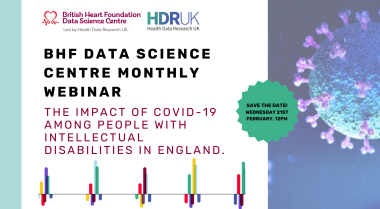It is important that we work to improve the prevention of COVID-19 and change healthcare services to better meet the needs of people who get COVID-19.
Most studies of COVID-19 are looking at people with symptoms and therefore miss those with no or mild symptoms, as well as those with limited access to healthcare. The REACT (REal-Time Assessment of Community Transmission) study is different because we recruit a random sample of people across England to test whether they have COVID-19, or had it in the past. This means the results are not based on someone having symptoms or using healthcare services. The study included over 1.5 million people in 2020, including 30,000 who tested positive either for the virus or for antibodies against the virus.
Using this unique dataset, we will:
- Better understand who is most at risk of developing COVID-19 by linking REACT data to routine healthcare data (e.g., use of GP records), as well as environmental data (e.g., air pollution) and socioeconomic data (e.g., deprivation).
- Inform public health planning by looking for links between testing positive for coronavirus (COVID-19) and subsequent healthcare needs (e.g., use of GP services, pharmacists, prescriptions, hospitals), and how these change by symptom profile and disease severity.
- Understand people’s risk of infection, and re-infection, by comparing Test and Trace data in people who did and did not have detectable antibodies in our study.
Visit the Health Data Research Innovation Gateway



